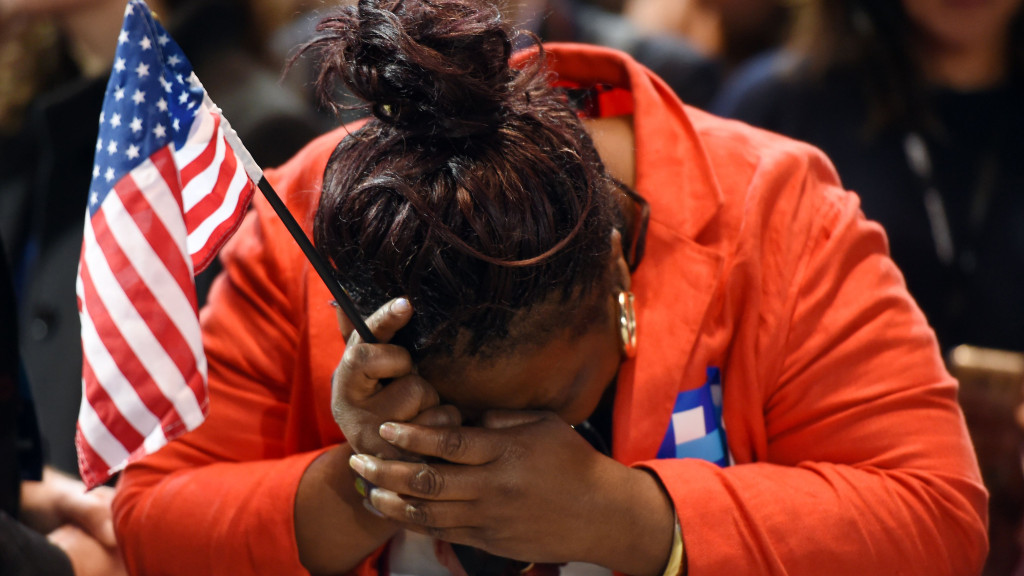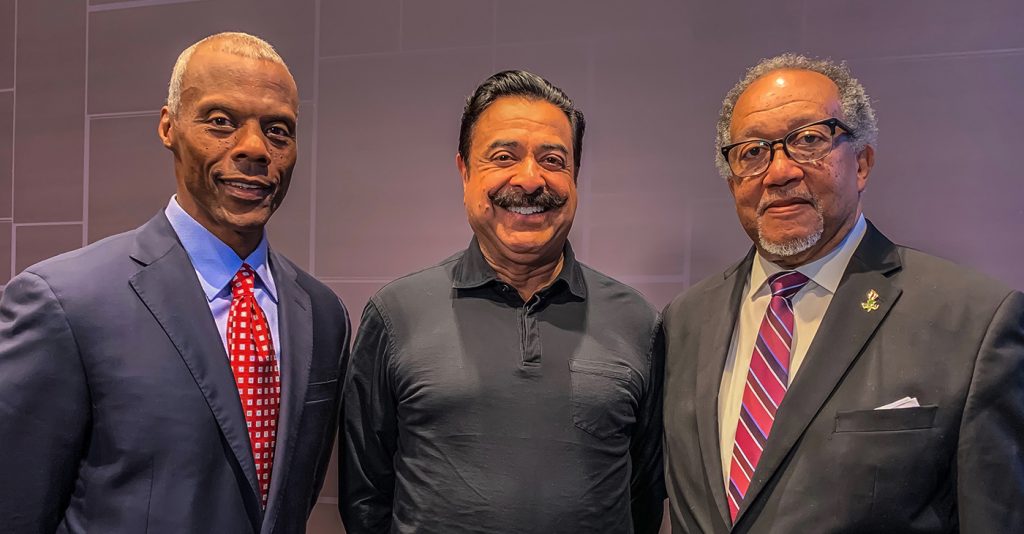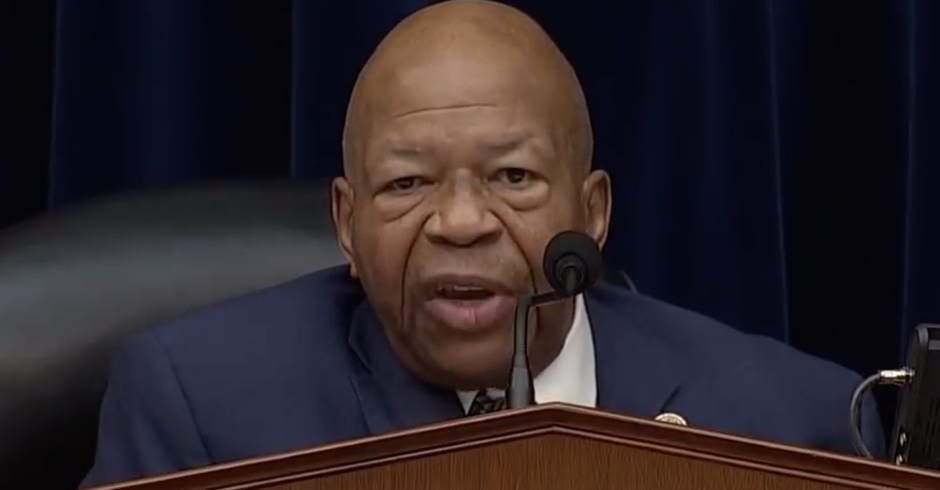
By Mira Jacob BuzzFeed Contributor
Here is what I remember from the time before we ever thought someone like Donald Trump could become an American president: I was 28, walking to work. On the corner of 11th Street and 7th Avenue, the traffic was sluggish. If I had looked past the windshields, I would have seen all the eyes turned to the sky. If I’d looked farther down the street, I would have seen all the people pouring into it. As it was, I looked to my side. Two teenage boys perched on a low wall by the hospital. One of them gestured down the avenue and I saw it, a smoking gash in one of the Twin Towers.
“New York City, man,” the other said, and rolled his eyes the way we liked to back then, when we pretended even the worst things about the city couldn’t surprise us because hadn’t we seen it all?
I walked to a payphone and called your grandfather collect.
“A plane just flew into a building out here,” I told him, imagining the Cessna he’d taught me to fly as a teenager in New Mexico.
Your grandfather came to America from India in 1968. From the start, he was in love with this country’s modernity, its streamlined efficiency, the way everyone always seemed to be hurtling toward an impossibly bright future. He was always smiling at contrails. “This country,” he’d say, “what a place!”
It was no Cessna, your grandfather told me on the phone that day. A few minutes later, when the second plane hit and everyone’s cell phones went down, I began relaying news from his television set to the group who’d gathered around me. Commercial airliners. Terrorist attack. People are jumping out of the buildings.
A woman ran up the street, purse banging into her side. “Please! My husband is in tower two!”
I hung up and handed her the phone. I walked into the street with everyone else. Thirty seconds later, tower two fell.
Here is what I remember about that: falling with the building. Not knowing until my knees hit the road. Thinking to myself: Get up. Do not fucking crawl in the middle of Seventh Avenue. No one crawls in the middle of Seventh Avenue unless they want to die. But the ground was roaring into the palms of my hands louder than any subway could, and it felt like it was trying to tell me something. For months after that, I would find myself unable to breathe, cupping my hands over my ears. From the outside it probably looked like I was trying not to hear anything.
I was trying to hear everything.
When you were little, you asked me why I was brown.
“I’m Indian,” I told you.
“From India?”
“Born here. My parents are Indian.”
“Am I Indian?”
“You are half Indian.”
“Am I half brown?”
“More or less.”
“Because Daddy is Jewish and white-skinned so I am also half Jewish and half white-skinned.”
“Exactly.”
“But in the summer I turn brown like you are now.”
“Yeah, true.”
“And then YOU turn into a black person.”
“Not exactly,” I said.
You are 8 years old now. When I tell you about things like this, you laugh like oh brother because you know better. You are a Brooklyn kid. You’ve seen some people.
This summer, as Donald Trump picked off his competition for the 2016 election, you learned to read the newspaper. You had more questions.
“Does Donald Trump hate all brown people?”
“Hate is a strong word.”
“Does he not like brown people?”
“Some.”
“Like Mexicans and Muslims?”
“Yes.”
“What about brown boys like me? Does he not like brown boys like me?”
“What’s not to like about you?” I asked. Then I grabbed you and tickled you and sank my face into your stomach, where you would not see my fear.
Here’s what I know: On Sept. 12, 2001, America saw me for the first time. Until then, I’d been mostly innocuous — maybe a cabbie’s daughter, maybe a television neurosurgeon, maybe a friend of the Patels. On the spectrum of American consciousness pre-9/11, South Asians lived somewhere between smart and smelly, and it seemed the worst thing we could be accused of was giving white men food poisoning.
Then we became the enemy. When I tell my Syrian Christian family back in India this, they cannot fathom it.
“But those fools were Saudi!” they say. “Muslims! Terrorists!”
“The white American imagination does not make those distinctions,” I would have told them then, if I’d understood it myself. What I knew was less concrete, but just as disturbing: When it came to stripping us of our rights, most forms of harassment would be hidden under the benign umbrella of Better Safe Than Sorry.
At the airport, my father was pulled off a plane and questioned when two white women passengers found him suspicious. At separate ends of the country, my brother and I could not get through a single security line without being “randomly” searched. In the subway station, an older lady looked at me and my black backpack with so much fear I thought she might pass out on the tracks. When I turned and opened it so she could see my laptop, she screamed and ran back up the stairs.
We had it easy, compared to our Muslim and Sikh friends. We had no last names to atone for, no turban to explain, no mosques to protect, no need, in subsequent attacks, to throw pre-emptive apologies into the abyss of American fury. South Asians in America at that moment watched our Muslim and Sikh friends and worried, but with a slight beat of hesitation, a politeness I still regret. What happened in that moment? Did we simply not know how to quickly and forcefully mobilize, having never done it before? Did we worry that by protecting the rights of Muslims and Sikhs, we were aligning ourselves with their fate? Or am I flattering myself by believing our instant, united response would have made any difference?
Sometimes I wish I could ask America when, exactly, it made its mind up about us. The myth, of course, is that it hasn’t, that there is still a chance to mollify those who dictate the terms of our experience here, and then be allowed to chase success unfettered by their paranoia. To live, as it’s more commonly known, the American dream.
A lot of our couple friends broke up after Sept 11, 2001. Your father and I had just moved in together the day before. We did not break up. Part of this was simple attraction. No one makes me laugh like your father does, no one interests me more, no one smells as good. But part of it, I know now, was a reaction to seeing our city fall apart. I am not talking about the buildings downtown, but what came after: the flags up in every window, the smug assurance that there was nothing to worry about if we had nothing to hide, the mourning of New York as a tarnished crown jewel instead of a multicultural mecca so many of us thrived in. The assumption this city was not also ours to lose.
Your father and I mourned the city together, and if before we’d had very little real thought about the symbolism of marrying outside of our race, now it became an act of defiance, a way to put faith in our better hearts. Five years after we married, we had you. Three weeks after that, Barack Obama was elected president. That night, we ran down the streets and laughed and cried and danced with our neighbors. You slept in a cocoon over my heart the whole time.
Here is the truth about us: Your father and I have been on different racial trajectories in this country for some time now. We do not always understand each other. But we always try. Some events are scarier than others. As white Americans justified the deaths of Trayvon Martin, Michael Brown, and Sandra Bland, we both felt horrified, but I was the one who fell into mute terror. Likewise, when we talked about it, I was the one who felt responsible — not for their deaths, exactly, but for my former belief in an America that did not exist for them, and further, for the melanin I’d dropped into your skin as your mother, for naming you after a Muslim musical hero of mine, for believing my child would be welcome and safe in this America.
Your father’s parents are Republicans living in Florida. For years, this had led to the kind of dinner discussions we’ve all tried to avoid, with your father devolving into righteous incoherence as your grandmother cites Fox News references. But even though he falls far from the tree, your grandparents love your father dearly, and he loves them back. With you, they are gentle, funny, loving, and wise, which I think is maybe why you’ve been so confused as national events have played out. In the last few months, your questions have become particularly acute.
“Grandma and Grandpa are really voting for Trump?”
“Last I heard, yes.”
“But aren’t they scared that Trump is racist?”
“I don’t think they think of him that way.”
“So he’s not racist?”
“No, he is, but…I think they don’t really look at that part. They are voting for him for other reasons that make sense to them.”
“But won’t they be scared for us if he wins?”
“Your grandparents love you a lot.”
“But what if—”
“A lot.”
And then in bed that night, just when I thought you’d conked out, “But can’t you just ask Grandma and Grandpa not to vote for Trump? Can’t you say, please, you live in Florida, do it for us?”
I said no quickly and firmly and we had to read a whole other book just to get you to go to sleep. But that night, when you were sleeping, I typed up an email. Dear Mom and Dad, I wrote. I made the best case I could. Please, I wrote, for us. I cried as I wrote it. I read it three times to make sure it was the absolute best letter I was capable of writing. Then I deleted it because the only thing worse than having to beg them to imagine our lives would be hearing them say no.
I cannot take another no right now. I have lost people all my life to nos, and this year the pace upped significantly. A fan of my novel scolded me for writing about race, saying I had overstepped my place as a writer, as if she were the arbitrator of it. A colleague eager to prove himself on the “right side” of racism threw a tantrum and ended our acquaintance when I suggested my life looked different than his imagining of it. A good friend talking to me about the Black Lives Matter movement tried to explain how race in America really works to me, as if I do not live it, and then told me my thoughts were all in my head anyway, as if that is not generally the case with thoughts. All of these people were white. All of them felt galled by my not reassuring them of their goodness at every turn in the conversation. But the truth is, I have no more reassurance left for my white friends and family. I am saving it all for you.
Over the last week, you would ask me questions at bedtime and I would answer them, kiss you goodnight, and go to the bathroom to sit alone and shake.
“If Trump doesn’t like boys who look like me, does that mean the government won’t like me? The army? What about the police?”
I reminded you that we have two very nice police officers we see regularly on our block, that you have uncles and cousins in the military, that the government has many checks and balances. I told you that the likelihood of a Trump election was very low, that he had to get Florida to win at all, that he probably wouldn’t.
The morning of the election, I woke up with so much in my heart, I was scared to move. I decided to wear a tuxedo to the polls. You and your father wore your own tuxedos in support. I marked my ballot, you put your hand on top of it, and we sent our prayer into the ballot box.
That night, we had an election party, and when the results started coming in, you grew very still on the couch. You watched with us as Florida grew tighter and tighter. As Wisconsin and Michigan went up for grabs. You watched me collapse into your father and then stand straight up again to take you to bed. In bed, you asked, “What if she doesn’t win? What if the country doesn’t like us anymore? What if they only like Daddy? Will he have to give us up?”
I told you it wasn’t like that, that no one would let that happen. I told you we would be okay no matter what happened.
Out in the living room, after you went to sleep, people’s armor started slipping. At one point, your many dark-skinned aunties and I had backed into the hallway while our white friends stared in disbelief at the television. One came over.
“Are you guys here because you feel like if you get away from the television, it can’t happen?” He wasn’t asking in a mean way, he was asking as a white man who has fathered two black children, who has been navigating huge swells of anxiety about America for decades. We nodded.
“Every poll that comes in, I think, they hate us. They hate us. You guys really fucking hate us,” one of your aunties said, and started crying. He nodded and did not fight her and I loved him for that — for coming over to check in, for listening and standing with us, for understanding that his ego was the least important thing to protect in that moment.
We turned off the television at 2 a.m. At 4, I bolted awake with a surge of fear I have not felt for 15 years. The weight of it pushed the air out of my lungs. My phone buzzed. It was your Auntie Alison. Auntie Alison’s parents are white and emigrated from working-class England. She is no more or less American than I am, but her skin color allows her a different perception. We talk about this all the time. She is my closest friend. She wrote: Can’t sleep. Just wanted to let you know I love you. I love your family.
One hour later, you crawled into our bed. “Did she win?” you asked.
“No.”
“What?”
“No, honey, she didn’t.”
“Trump won?”
“Yes.”
“President Trump?”
“Yes.”
At first I thought it was my body shaking, but then I realized it was yours. I curled myself around you.
“What will happen to us?”
“We will be okay. We will keep going.”
“President Trump?”
“Oh, sweetie.”
I told you that you and Daddy and I would be okay. I repeated that Martin Luther King Jr. quote I’d just seen on Instagram about the arc of the universe bending toward justice. I told you love was stronger than hate and that was an actual fact because if you ever watched superhero movies, the guy who was fighting for love always beat the guy fighting for hate. We decided to watch action movies this weekend.
In the coming days, weeks, months, and years, some people will try to tell you this election was like any other, the same way they will try, when you are older, to tell you your experience of living in your own skin is “all in your head.” This is nonsense. You will see me having no patience for this. Prepare to hear things like, “I do not believe this for a moment. It saddens me that you do.” That will be my tamped down, 8-year-old-audience-appropriate version of what I’d rather say to them, which is, “I am a brown American woman who has been watching this country from its margins for 43 years. There is nothing you can teach me about your normal that I don’t already know and loathe.”
Here is what I would tell you if you were older: This moment is like nothing else and like many things we have lived through before. It is the culmination of the last 18 months, yes, but also the flesh and blood materialization of a shadow that dogged the entire Obama presidency, a by-product of the righteous anger we’ve nurtured since 9/11, and tangible evidence — as if we needed more — that America does not yet know how to love and value its people of color, its immigrants, its Muslims, its gays, its disabled, its women. It is a gash in a building that becomes a second gash in another building that becomes a rumbling that will send you to your knees on the street.
But listen, love, because I need to remind you of something and I need you to remember it extra well over the next four years: This is our street. It is our street. So when you feel that rumbling pushing up through your palms, I want you to press them flat against it, and do not be afraid to hear everything.
Hear what is falling all around us. Hear your innocence being taken as quickly as you turn a corner in your own city. Hear a country that has been rough on minorities since its inception, and will continue to be so now at an accelerated rate. Hear people ignoring this basic truth because it is convenient for them to do so. Hear your grandparents loving you and electing a man who does not, and know that though that is fraught, though it is complex, it does not make their love for you any less real. Know that you will still need this love, in all its complexity, that it is okay for you to give and receive it. Hear that these are the true corridors of the America you will have to navigate, the ones that might fill you with wonder one day, self-doubt and fury the next. Hear my phone ringing all day and night right now with friends of all backgrounds who say, “I love you. I will protect you and your family.” Hear your father and me talking quietly in the next room as you sleep, trying to stay honest, alert, and kind even as we discuss our disappointments in this world, in each other. Hear us finding each other, again and again. Hear that this is what love in America can look like.
Mira Jacob is the author of the critically acclaimed novel The Sleepwalker’s Guide to Dancing, which was shortlisted for India’s Tata First Literature Award, honored by the Asian Pacific American Library Association, and named one of the best books of 2014 by Kirkus Reviews, the Boston Globe, Goodreads, Bustle, and The Millions. Her recent work has appeared in the New York Times Book Review, Vogue, Guernica, and The Scofield. She is currently drawing her graphic memoir, “GOOD TALK: Conversations I’m Still Confused About” (forthcoming from Dial Press).









